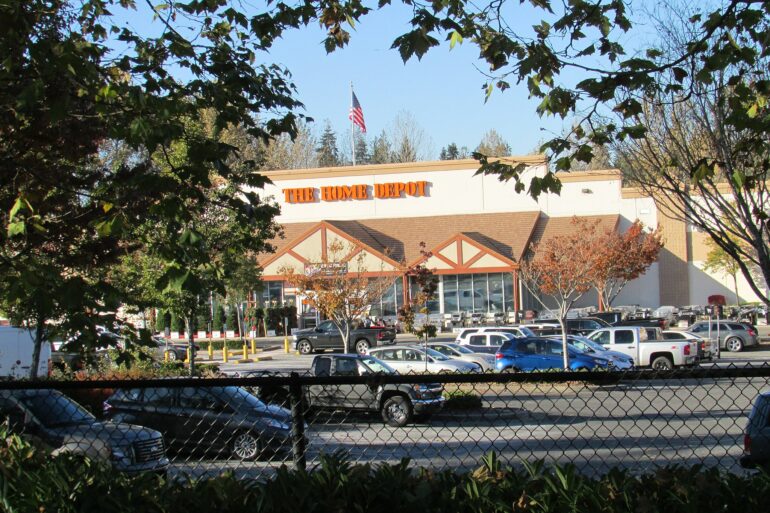Two of the leading retailers in the United States do not have a good feeling about the future of the economy. Walmart “struck a cautious note in its economic outlook for 2023 on Tuesday as the retail bellwether forecast full-year earnings below estimates and warned that tight spending by consumers could pressure profit margins.
Higher U.S. consumer prices and loftier costs for rental housing and food have raised fears among executives that the U.S. Federal Reserve could further lift borrowing costs to cool domestic demand, leading to an economic downturn in the second half of the year,” according to Reuters.
In a surprise, the discount store known for its “falling prices” announced that higher-income customers made up nearly half its sales gains over the fourth quarter.
Walmart recently announced that it was redesigning its stores to go after “upscale” customers.
CNBC reported that “Home Depot issued similar guidance. The home improvement retailer, which also reported fiscal fourth-quarter earnings Tuesday, said it is planning for flat same-store sales, as stubborn inflation and climbing interest rates cause consumers to watch their spending.
Home Depot’s shares slid Tuesday morning, while Walmart’s were effectively flat, as they foreshadowed the emerging theme: consumers are becoming harder to win over.
At Walmart, that means shoppers are buying more necessities like groceries and lightbulbs rather than big-ticket items or discretionary items like electronics and home decor. At Home Depot, it could mean customers may delay a home project or opt for cheaper floor tiles or kitchen appliances.
Home Depot Chief Financial Officer Richard McPhail said inflation is influencing customers’ decisions. “We’ve seen an increasing degree of price sensitivity as the year’s gone on, which is actually sort of what we predicted in the face of persistent inflation.”
Despite being cautious, one area where Americans do not seem to be shying away from spending is at restaurants. Yahoo Finance noted, “Consumers spent more than $86.6 billion at restaurants in the month of January, up 24% compared to the same month in 2022, per the latest data from the U.S. Census Bureau. Spending on groceries, beer, wine, and liquor was up 5.3%, totaling about $78.9 billion last month.
This comes as the cost of food away from home outpaced the cost of buying groceries. Per the Bureau of Labor Statistics’ (BLS) January Consumer Price Index (CPI), the cost of groceries was up 11.8% year-over-year, while dining away from home was up 8.2%.
Despite menu price increases to offset inflation at many restaurants and fast food chains, customers seem to be turning a blind eye to rising prices after being cooped up during COVID.
According to the Mastercard Spending Pulse survey, U.S. consumers said dining out is a priority, with demand for it growing 24.2% year over year.”
Earlier in the week, St. Louis Federal Reserve President James Bullard said that the Fed needs to pick up the pace on fighting inflation.
Bullard told CNBC that a more aggressive posture toward interest rates was needed to bring down inflation that, although dropping a bit from the previous six to nine months, remains dangerously high.
“It has become popular to say, ‘Let’s slow down and feel our way to where we need to be.’ We still haven’t gotten to the point where the committee put the so-called terminal rate,” he said during a live “Squawk Box” interview. “Get to that level and then feel your way around and see what you need to do. You’ll know when you’re there when the next move could be up or down.”
“If inflation continues to come down, I think we’ll be fine,” Bullard continued. “Our risk now is inflation doesn’t come down and reaccelerates, and then what do you do? We are going to have to react, and if inflation doesn’t start to come down, you know, you risk this replay of the 1970s … and you don’t want to get into that. Let’s be sharp now, let’s get inflation under control in 2023.”
[Read More: Big Tech Has Its Day In Court]



